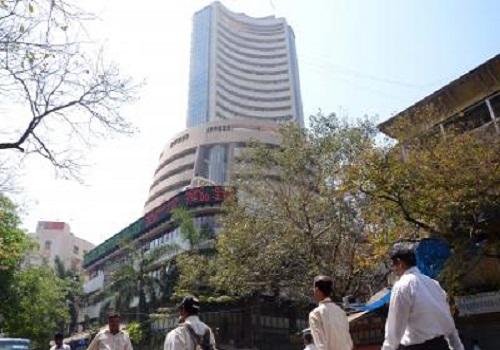Indian stock market to deliver 11-12% returns with short term corrections

The Indian stock market is expected to continue to deliver over 11-12 per cent returns with short term corrections, said a senior official of Anand Rathi Wealth Ltd.
He said short term corrections in the market are inevitable and investors should use that as an opportunity to invest.
Responding to the query whether the bull run is coming to a halt, Deputy CEO Feroze Azeez told IANS: “Equity, as an asset class, goes through bear and bull market cycles. A bull cycle is a period where equity market returns are substantially above the long-term average returns of 12 per cent.
“Bull runs are driven by characteristics such as greater than long term growth rate, lower inflation and interest rate and improved corporate earnings and each of these situations today is positive."
In the calendar year 2023, the Indian equity market experienced substantial movement, delivering an impressive 10.35 per cent gain, from 18,105 level in January to a high of 19,979 in July, Azeez remarked.
According to him, several factors have played a pivotal role in propelling the equity markets to new heights.
India is one of the fastest-growing major economies worldwide, with an estimated growth rate of 7.2 per cent for FY 2023.
Moreover, the real gross domestic product (GDP) growth forecast for the financial year 2023-24 stands at 6.2 per cent, exceeding the long-term average growth rate of 6 per cent.
The Consumer Price Index (CPI) has declined from 6.52 per cent in January to 4.81 per cent in June, indicating a reduction in inflationary pressures.
Additionally, the 10-year average inflation of 5.8 per cent depicts that the economy is in a favourable position. Furthermore, GST collections for Q1 of June have risen by 11.6 per cent year-on-year, while direct tax collections for the period of March recorded substantial growth of 18 per cent year-on-year.
“The government's prudent fiscal management has projected a fiscal deficit of 6.4 per cent for FY 2022-23, with the fiscal deficit for the first three months reported at 5.9% year-on-year. Importantly, the government's focus on borrowing for capital spending, rather than consumption, is likely to support lower yields on bonds,” Azeez said.
He also said, the inflows from foreign institutional investors (FII) and domestic institutional investors (DII) have been key drivers of the market's upward trajectory with the DII inflows remaining strong throughout.
However, after being net sellers in the first half of 2022, foreign portfolio investments (FPI) inflows turned positive in July 2022 with a record inflow of Rs. 47,148 crore in June 2023.
This positive momentum is expected to continue, with July witnessing inflows of over Rs. 40,000 crore in just three weeks, potentially setting new peaks this month end, Azeez added.
Pointing out that the overall macro-outlook for India remains positive, leading to high expectations for the equity market's performance.
Presently, the market is valued at a Price-to-Earnings (PE) ratio of 20. Though this PE level is slightly higher than the long-term average of 18-19, it can be justified if corporate earnings continue to improve in the upcoming quarters and inflation remains in check due to rate cuts, he remarked.
The Nifty 50 index has already recorded an impressive 18.8 per cent growth for Q1 FY 2024 on a year-on-year basis, largely driven by the banking sector.
With an earnings per share (EPS) growth expectation of 15 per cent for FY 2024 along with the combination of a low base effect, robust economic activity, and the normalisation of various factors indicates potential improvement in growth for FY 2023-24.
“Looking back at historical data, it becomes evident that the equity markets experience an average annual correction of 15 per cent, with some exceptions like the years 2008 and 2022. Over the last 22 years, negative returns on a calendar year basis have occurred only four times, with markets being positive for 82 per cent of the time and achieving a Compound Annual Growth Rate (CAGR) of 12.86 per cent,” Azeez said.
“All the macro numbers such as greater than long term growth rate, lower inflation and interest rate and improved corporate earnings are all positive therefore we expect the market to continue to deliver more than 11-12 per cent. While short-term corrections in the market are inevitable, investors should use that as an opportunity to invest.”























